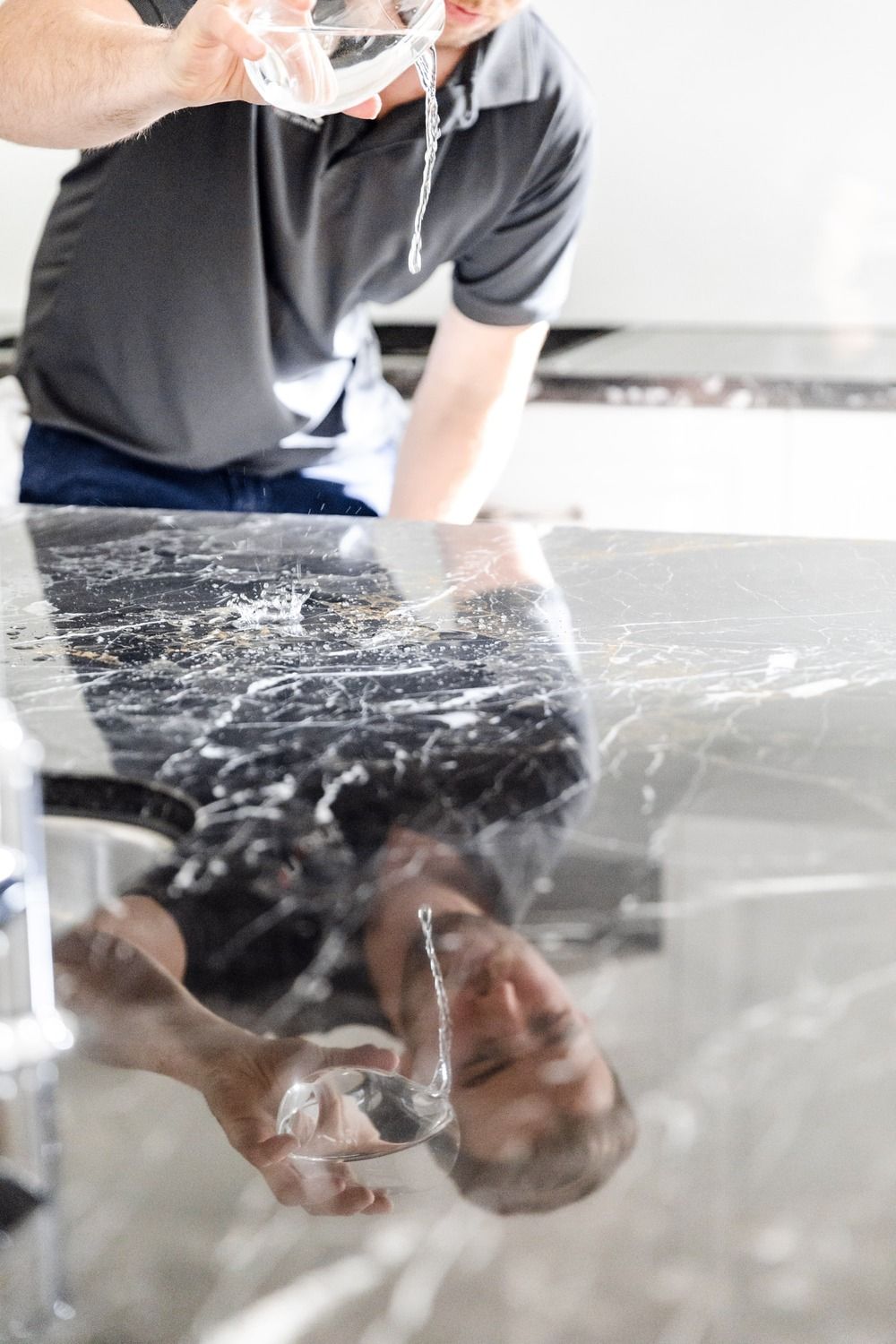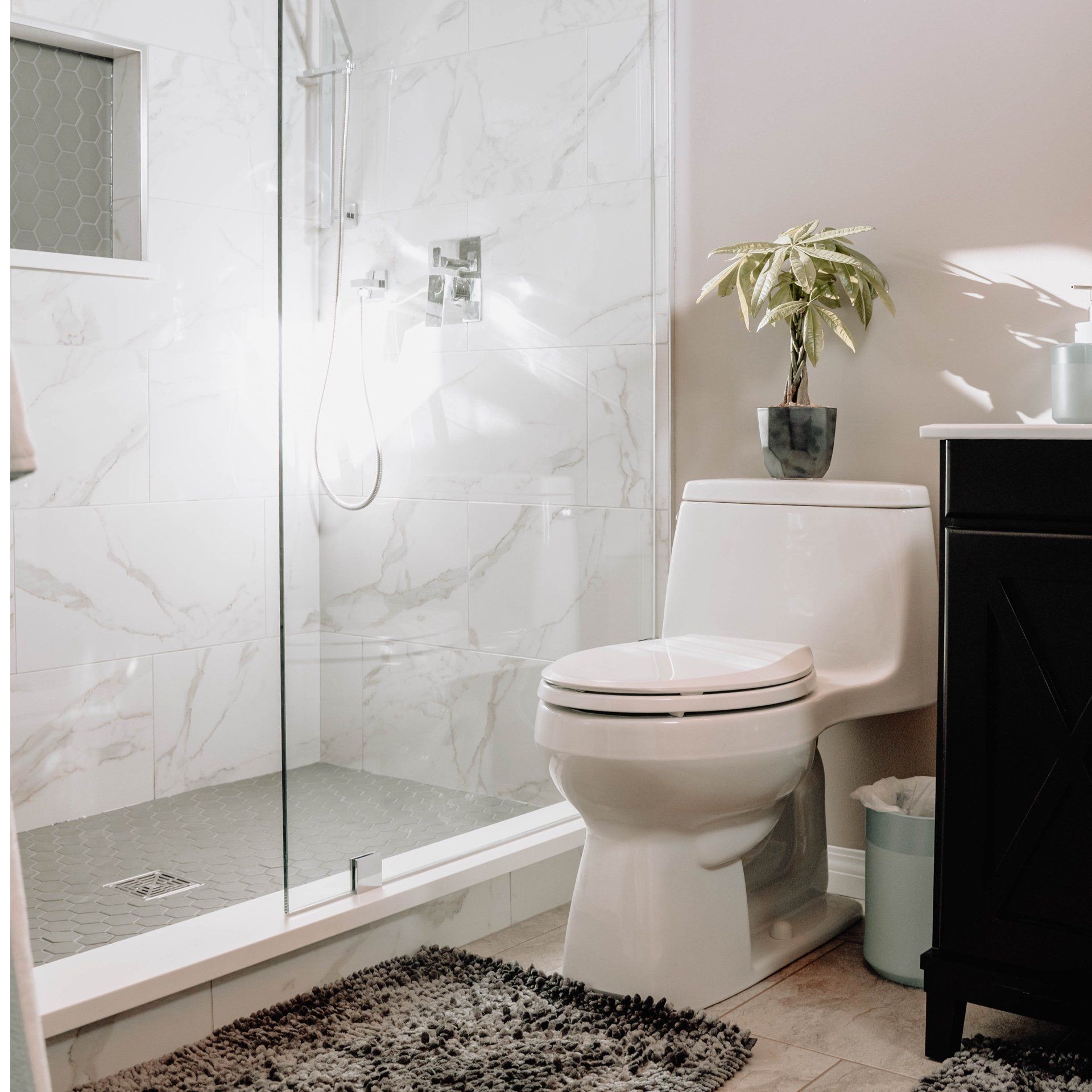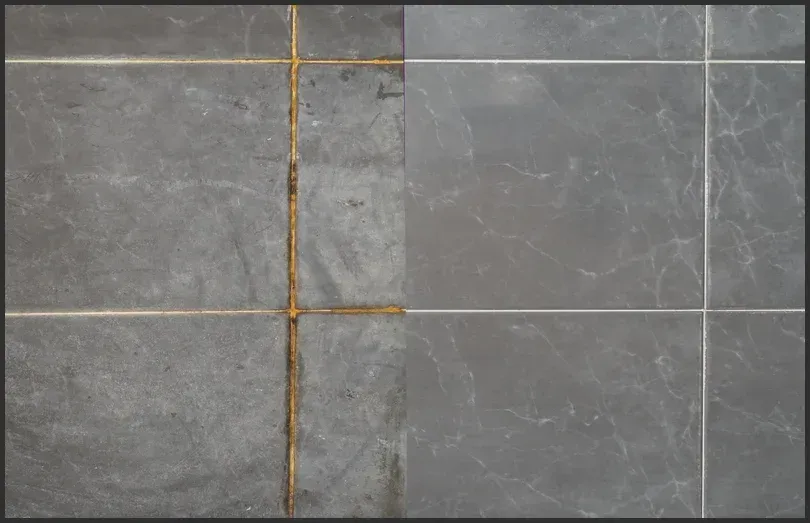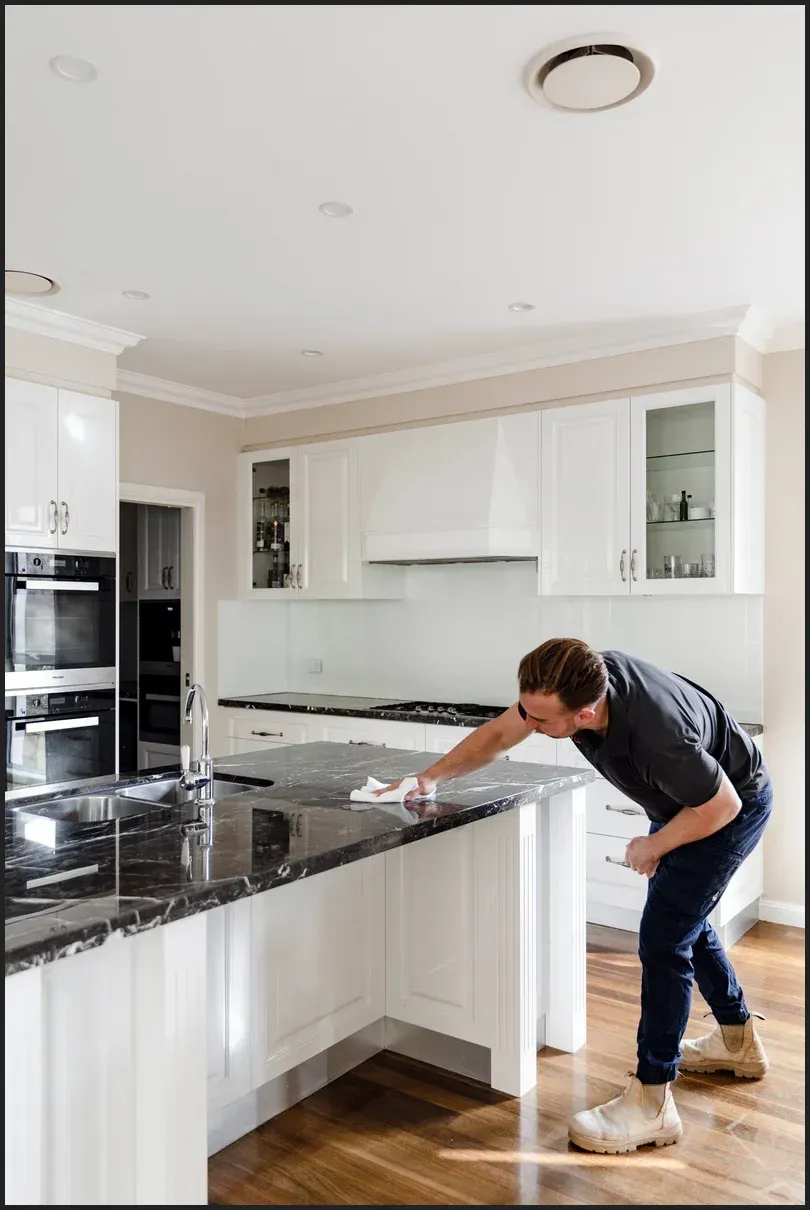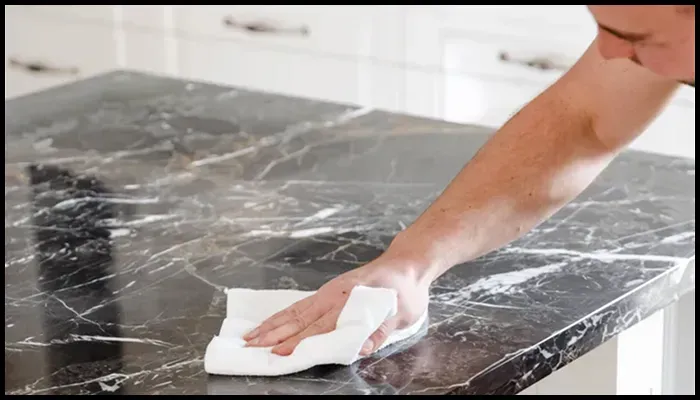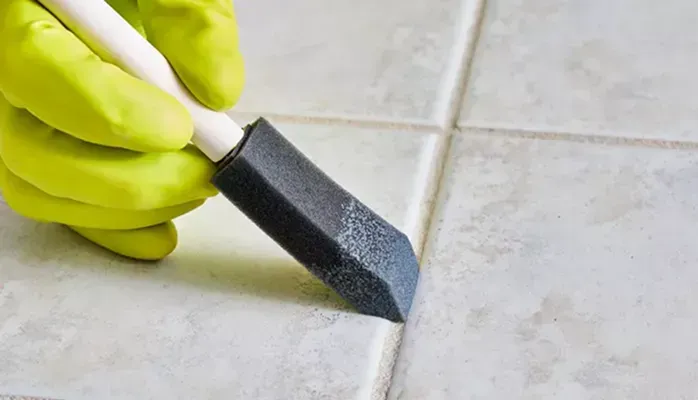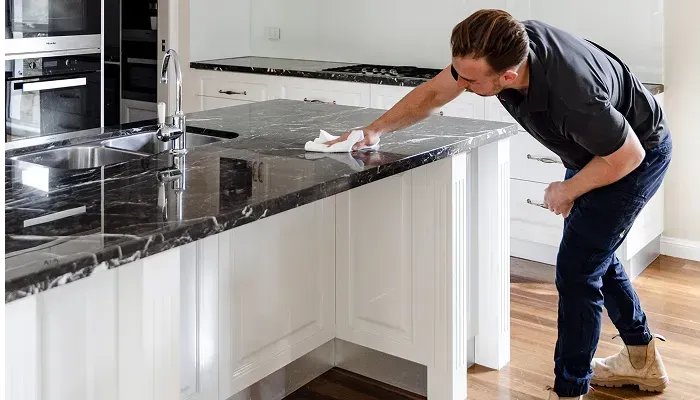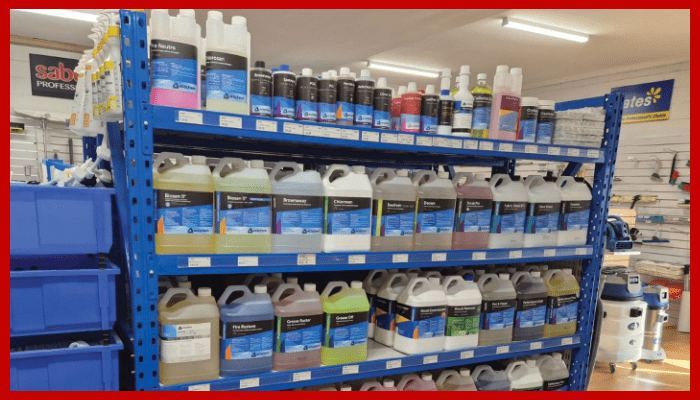Benefits of Sealing Your Stone Floors
5 Benefits of Sealing Your Stone Floors in Canberra
Table of contents:
- 5 Benefits of Sealing Your Stone Floors in Canberra
- Types of Sealants and Their Role in Stone Protection
- How to Know When to Seal Your Stone Floors: Simple Water Test
- Get Peace of Mind with Professional Stone Sealing Services
- Frequently Asked Questions About Sealing Your Stone Floors
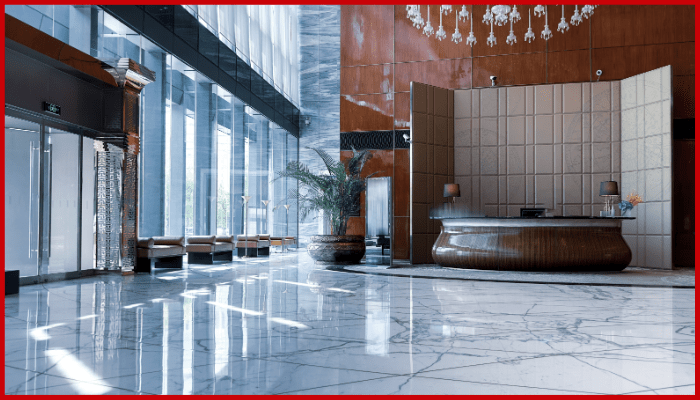
Stone floors are a popular choice for homeowners and businesses in Canberra due to their durability and timeless natural beauty.
However, to maintain their pristine appearance and protect them from the elements,
regular sealing is a must.
Sealing your stone floors not only enhances their aesthetics but also ensures long-lasting protection against wear and tear.
Below, we explore the top five benefits of
sealing your stone floors, particularly in Canberra's
four seasons climate.
1. Protecting Your Investment: Long-Lasting Protection with Stone Sealers
One of the key benefits of sealing your stone floors is the creation of a protective barrier.
This barrier helps prevent permanent stains, water damage, and deterioration caused by foot traffic and cleaning products.
Whether you have new stone floors or older surfaces in need of stone restoration, applying a quality stone sealer offers long-lasting protection.
In high-traffic areas such as hallways and kitchens, sealed floors are less likely to absorb moisture, dirt, and spills, significantly reducing the risk of stains.
By investing in regular floor sealing, you are protecting your valuable stone surfaces for years to come.
2. Enhancing Natural Beauty: Sealed Stone Floors vs. Unsealed
Sealing your stone floors not only protects them but also enhances their natural beauty.
The sealing process can deepen the colour of the stone and give it a more polished appearance while preserving its unique texture.
By using penetrating sealers, you can maintain the natural stone surfaces without changing their look.
These sealers penetrate deep into the pores of the stone, keeping the surface looking untouched.
On the other hand, if you're looking for a more polished finish, you can opt for high gloss or topical sealers, which add a sleek sheen to the stone’s surface.
Whether you prefer a natural matte finish or a glossy look, sealing ensures that your floors remain aesthetically pleasing while being well-protected.
3. Boosting Durability: Sealing for High-Traffic and Outdoor Areas
Stone floors in high-traffic areas, such as entryways or living rooms, are exposed to constant wear and tear.
Sealing your floors ensures they can withstand the wear and tear of daily foot traffic, reducing the likelihood of scratches, cracks, and other damage.
For outdoor stone surfaces, such as patios or walkways, sealing offers additional protection from UV light and Canberra’s unpredictable weather.
Impregnating sealers provide slip resistance and enhance the durability of your stone, especially in porous materials like sandstone.
Sealing outdoor stone ensures that the surface remains strong and slip-resistant, even after exposure to the elements.
4. Reducing Maintenance: Easier Cleaning and Fewer Repairs
Sealed stone floors are much easier to maintain compared to unsealed ones.
The sealant fills the pores of the stone, preventing dirt, grime, and spills from penetrating the surface.
This makes regular cleaning more effective and reduces the need for deep cleaning or repairs over time.
Sealing also protects the grout lines between your tile floors, keeping them free from stains and discolouration.
If you're unsure whether your stone floors need sealing, you can perform a simple water test—pour a small amount of water onto the surface.
If the water is quickly absorbed, it’s time to seal your floors again.
5. Improved Safety and Hygiene: Slip Resistance and Stain Prevention
Sealing your stone floors can also improve safety and hygiene, particularly in areas prone to moisture, such as bathrooms and kitchens.
A properly sealed floor provides a slip-resistant surface, reducing the risk of accidents in wet areas.
Additionally, by sealing the stone’s pores, you prevent the growth of mould and bacteria, which can accumulate in porous stone materials.
For Canberra homeowners, this means greater peace of mind, knowing that their sealed stone floors are not only beautiful but also safe and hygienic for their families and guests.
Types of Sealants and Their Role in Stone Protection

There are several types of sealants to consider when sealing your stone floors.
Penetrating sealants and impregnating sealers are ideal for maintaining the natural appearance of the stone, while surface sealants provide a stronger protective layer.
The choice of sealant depends on the type of stone and its location, whether it's outdoor stone or tile floors in high-traffic areas.
How to Know When to Seal Your Stone Floors: Simple Water Test
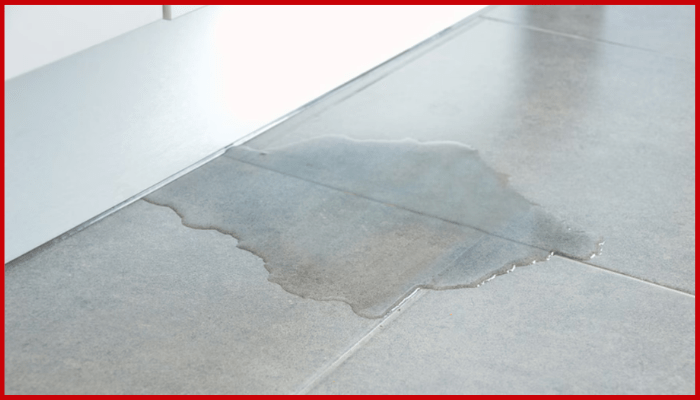
As mentioned earlier, the simple water test is a quick way to check if your stone floors need sealing.
If water seeps into the stone rather than beading on the surface, it’s time to reseal.
Canberra residents can get a free quote from
On Point Property Services to assess the condition of their stone floors and receive expert advice on the best sealing solution.
Get Peace of Mind with Professional Stone Sealing Services

At On Point Property Services, we pride ourselves on delivering high-quality sealing services for Canberra homes and businesses.
Whether you need to seal your stone floors or require full
stone restoration, our expert team offers long-lasting solutions that protect and enhance your stone surfaces.
We understand that your stone floors are an investment, and we’re committed to helping you protect them with the best practices in stone care.
Contact us today for a
free quote
and let us help you keep your stone floors looking their best.
Frequently Asked Questions About Sealing Your Stone Floors
1. What are the different types of stone sealants available for my natural stone floor?
There are several types of stone sealants you can use for your natural stone floor, including penetrating sealants, water-based sealants, and impregnating sealants. The type you choose depends on the stone type and the level of protection you need. Penetrating sealants are excellent for maintaining the natural look of the stone, while water-based sealants are more environmentally friendly. A really good brand to consider using is Aquachem, which is a leading brand in the stone cleaning industry.
2. How often should I apply a stone sealant for regular maintenance?
The frequency of sealing depends on the surface of the stone and the amount of foot traffic it receives. For high-traffic areas or natural stone flooring, we recommend applying a quality sealer every 1-3 years. Regular maintenance is very important for protecting your investment and extending the life of your stone floors.
3. What is the difference between an impregnating sealant and a surface sealer?
An impregnating sealant penetrates the pores of the stone, providing deep protection without altering the surface appearance. A surface sealer, on the other hand, creates a protective layer on the surface of the stone, often giving it a shiny finish. If you're looking for a natural look, impregnating sealants are a great option.
4. Can sealing protect my stone floors from permanent stains?
Yes, sealing your stone floors creates an effective barrier that provides long-lasting protection against dirt, moisture, and stains. Applying a floor sealer is a crucial step to prevent permanent damage, especially on porous surfaces like limestone or marble.
5. What are the best practices for maintaining sealed stone surfaces?
After sealing, ensure you use appropriate cleaning products that won’t strip the sealant. Avoid harsh chemicals and opt for stone-friendly cleaners. Regular maintenance involves resealing every few years and conducting periodic checks for wear and tear, especially in high-traffic areas.
6. Can stone sealing be applied to wall tiles and granite countertops?
Yes, sealing is beneficial for both wall tiles and granite countertops. The process helps protect against spills and moisture, maintaining the natural beauty of the stone and offering effective protection for a long time. Be sure to choose the right type of sealer for each surface.
7. Is there a difference between sealing tiles and sealing natural stone floors?
Yes, while both sealing tiles and natural stone floors involve similar processes, the materials differ. Natural stone is more porous and may require a penetrating sealant or impregnating sealant for deep protection. Tile floors, on the other hand, might only need a surface sealant, depending on the material.
8. How do I know when my stone floors need resealing?
A simple way to check is to perform the water test. Pour a small amount of water on the surface of the stone—if the water absorbs quickly, it’s time to reseal. This test works for both stone floor tiles and natural stone flooring.
9. What level of protection does sealing provide for outdoor stone surfaces?
Sealing offers effective protection against the elements, such as UV rays and rain, especially for outdoor stone surfaces. It can also make outdoor stone slip-resistant while preventing weather-related damage. For outdoor areas, choosing a water-based sealant or impregnating sealant is ideal for long-term durability.
10. How can I get a free quote for stone sealing services?
At On Point Property Services, we offer customer service tailored to your needs. You can contact us by providing your email address or by contacting us on the phone for a free quote. We’ll assess your stone surfaces and recommend the best sealing solution to protect your investment.
